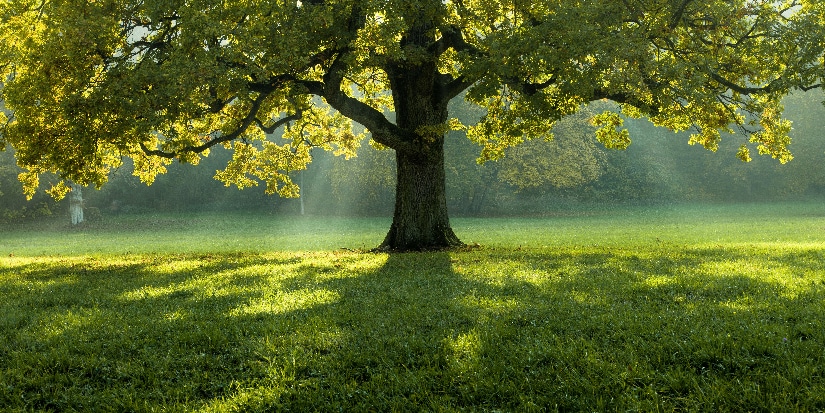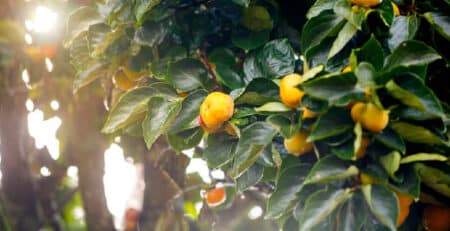The 7 Main Reasons Why Trees Are Important
Have you ever stopped to think, why are trees important? Maybe that is why you are here now. You started marvelling at the amazing wooden creatures and thought there must be more. Tree control is an integral part of maintaining the spaces we live in. But it’s always important to consider the more significant impact of removing a tree. In cases where the trees are actively causing harm, are sick, a safety hazard, or already dead, tree removal might be necessary.
However, healthy trees that aren’t causing any problems have many benefits and are essential for their local ecosystem and the broader world. Here are the seven main reasons why trees are important.
 They Help The World Breathe
They Help The World Breathe
It’s something that most of us are taught in school growing up, but it’s easy to underestimate just how vital trees are to helping us breathe. They naturally keep the balance of the world, in particular, by taking in excess carbon dioxide from the air. Much like humans process oxygen for internal processes and exhale carbon dioxide in exchange; trees do much the same in reverse. Trees get energy from photosynthesis, water, sunlight, and carbon dioxide to make glucose. Then, oxygen is released back into the air.
A single tree produces almost 260 pounds of oxygen every year. Overall, trees produce roughly a third of all of the oxygen in the air. To put that in perspective, two mature trees can give off enough oxygen to keep a family of four people breathing. Given that we, alongside every other animal, require oxygen to breathe, it should go without saying that we would be in some pretty dire trouble without trees. It’s why forests like the Amazon jungle are sometimes called the “lungs of the world.” So I guess you could one of the reasons why trees are important is they keep us alive. That seems pretty important to us.
 Trees Purify the Soil Around Them
Trees Purify the Soil Around Them
Waste levels in the soil are a significant problem. Pollution can leak from waste sources, such as landfills, dumps, and other kinds of disposal sites. These toxins can seep through the ground, causing significant problems for the local ecosystem and sometimes infecting local water supplies. However, some trees benefit from fighting off these toxins, absorbing them effectively and efficiently under our notice.
Phytoremediation is the name of the process by which some green plants, including certain trees, can either balance out or remove toxins, contaminants, and pollutants from the soil around them and, in some cases, even the groundwater. Toxic metals, for instance, can be neutralized or stabilized.
The process by which trees clear up soil-based toxins has recently been discovered, but the practice of planting as waste-cleanup tools has been in use for decades. The larger and faster a tree goes, the more toxins it sends to neutralize in the soil around it, as well. There is also evidence suggesting that “greening” an area with trees makes it less likely to be used as a waste disposal area in the future, too.
 They’re Essential For The Water Cycle
They’re Essential For The Water Cycle
Why trees are important, aside from being crucial for our air and soil, trees play a vital role in the water cycle. The water cycle is how water rains and returns to the atmosphere. In particular, trees take the water in from the soil after it rains. While some of this water is used to create glucose, excess water is breathed or transpired into the air vapour. Which is excreted into the soil as a liquid.
If it were not for trees, then the rainwater that falls would all directly hit the ground soil, which would speed up issues like soil erosion and runoff. Instead, the trees hold the water like a sponge, regulating the water cycle by absorbing it from the soil into their roots. Water is then moved up through the trunk, serving as food for the leaves and the branches.
Trees also improve the quality of the water around them much in the same that they enhance the quality of soil by absorbing toxins in the surrounding area.
 Good For Our Health
Good For Our Health
The purifying and regulating effect that trees have on the water, soil, and air all bring immense benefits and truly shows why trees are important. But what are some of the specific health benefits that trees directly bring to humans? To put it simply, there are more than enough to fill an entire page with benefits. But here are just some of the following:
- Access to trees and green areas has significantly impacted mental health, including decreasing symptoms of stress and depression and raising self-esteem levels.
- People who live near trees are less likely to develop allergies in their lifetime.
- Being exposed to trees and forests can boost our immune systems, thanks to the fact they give off phytoncides, airborne chemicals that have antibacterial and antifungal properties.
- Spending time around trees can reduce directed attention fatigue, helping us regain our focus, especially if we have a busy life with jobs, school, and social relationships.
- Trees might even help the body heal itself, with some evidence that patients recover from surgery more quickly if they are in view of trees.
 Crucial Habitat for Wildlife
Crucial Habitat for Wildlife
While removing some trees is crucial, it is a decision that has to be made with care every time. When we remove a tree, we’re not just removing one organism that’s isolated from everything else. We are removing part of an ecosystem that supports other living things in those ecosystems.
A huge range of birds, mammals, and insects all make trees their homes. The process of human encroachment on natural habitats is an ongoing crisis. Deforestation is a major contributing factor to the extinction and endangerment of thousands of species worldwide. By keeping a few more trees, we can all do our part to slow that change.
Trees provide homes to small creatures like snakes, frogs, birds, beetles, spiders, and much more. They offer a safe hiding place for prey, not to mention valuable feeding spots, as well as shelter from the elements. There are thousands of species that have adapted to live in these specific environments. When you remove those habitats, these animals cannot easily live in other places. Without a home, they are more likely to perish, forever diminishing the local environment’s eco-diversity.
 Trees Combat Noise Pollution
Trees Combat Noise Pollution
Aside from their more widespread benefits to the world, trees also improve their local landscape in various ways. One way they do that is by combatting the noise levels in cities and towns across the world. Trees don’t exactly reduce the noise level around us, but they do muffle and block it. As such, a neighbour’s weed whacker might sound a little closer to a white noise machine if there are trees between you and that neighbour.
Noise reduction is becoming an important part of planning for living spaces in cities and towns. The consistently higher noise levels of more developed areas can have negative impacts on the people living there. For instance, at nighttime, higher noise levels can make it much harder to get to sleep. However, even in the day, high noise levels can contribute to stress.
Trees can reduce noise levels by up to 6 decibels depending on how densely they are planted and their proximity to both the noise source and the person listening to it.
 They Combat Climate Change
They Combat Climate Change
As mentioned, trees take excess carbon dioxide out of the air. Even without carbon emissions from the vehicles, machines, and appliances we use in day-to-day life, they would play a crucial role in taking the carbon dioxide that we humans breathe out and giving back oxygen for us to breathe in. However, carbon dioxide doesn’t just come from our breathing. We are currently producing much more than the environment can handle.
Global warming is a part of climate change. This process affects natural habitats across the nation and is linked to increasing rates and severity of stormy weather across the world. Global warming, in particular, is largely responsible for a net loss of ice cap volume, which is going to lead to rising sea levels that could genuinely threaten coastal communities. The excess carbon dioxide that we create gets stuck in the atmosphere, creating a net that traps heat from the sun, preventing it from releasing into space.
Trees specialize in removing the carbon dioxide that we are polluting the atmosphere with through human activity. As such, planting more and more trees could become an important strategy for reducing the impact of anthropogenic (human-caused) climate change.
Never Underestimate Why Trees Are Important
Trees provide such a huge range of benefits for people, the local wildlife, the environment, and the planet’s future. They’re the lungs of the world, the homes of millions of creatures, and an essential part of how the environment regulates and cleans itself. As such, it’s important to consider carefully how you handle tree management in your local area. We hope this encourages you and shows you why trees are important in every aspect of life.







